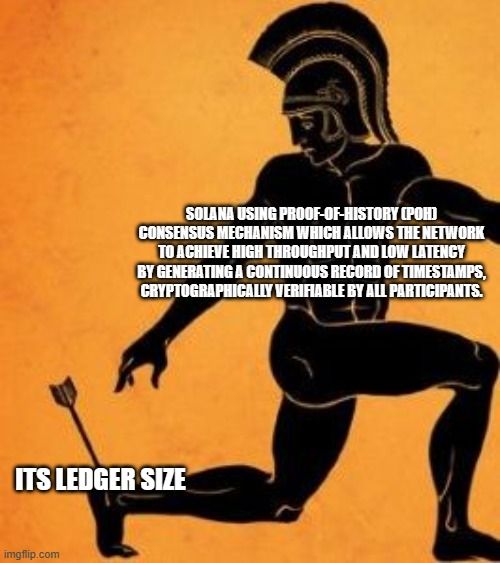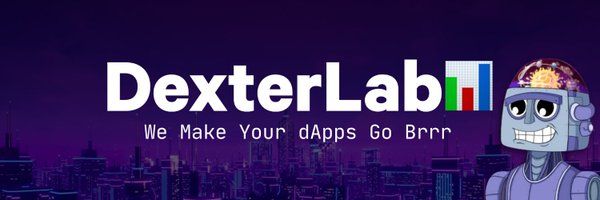The blockchain as we know it today is an expanse of innovation. From decentralized networks that are changing the way we see traditional industries, to novel projects offering new paradigms for data ownership, security, and most importantly financial transactions. However, with every revolutionary step comes a unique set of challenges. One such hurdle for Solana, like most of the other blockchains, is managing the ever-expanding size of its ledger.
Storing historical data on the blockchain can be a costly endeavor, hindering scalability and accessibility for developers and users alike. Thankfully, creative minds on Solana are constantly seeking solutions like LightArchive, a feature on solanaRPC that ensures a future where data storage is efficient, selective, and empowers users to store less and do more.
Scale your vision, not your expenses!
— SolanaRPC (@SolanaRPC) February 9, 2024
Independent Solana archives ✅
Cost-effective ✅
Open-source ✅
Start building with 👉 https://t.co/mPZYspaZ9V pic.twitter.com/7oFv273bTl
Understanding Solana's Storage Dilemma
Solana's impressive performance relies on its unique Proof-of-History (PoH) consensus mechanism. This innovative approach allows the network to achieve high throughput and low latency by generating a continuous record of timestamps, cryptographically verifiable by all participants. However, this very strength presents a challenge: the ledger size.

Currently, Solana's ledger sits at a staggering 240 terabytes (TB). To put that in perspective, that's enough data to store roughly 30 thousand high-definition movies! This massive amount of information breaks down into three primary components:
- Blocks: These are the fundamental units of data on the blockchain, containing transaction information and timestamps. Currently, blocks occupy approximately 56TB of storage.
- Signatures Index: This crucial element allows for efficient verification of transactions by indexing every signature included in the ledger. This index currently consumes a significant portion of storage, at around 140TB.
- Transaction-to-Block Relationships Index: This index helps users quickly locate specific transactions within the ledger, currently using 34TB of storage.
Previously, running historical nodes on Solana relied on expensive cloud storage solutions like Google BigTable. These centralized options, while functional, came with a hefty price tag, often exceeding $25,000 per month – a significant barrier to entry for smaller projects and individual developers.
The Limitations of Current Solutions and Why Cloud Storage Isn't the Answer for Blockchain Data
While cloud storage offers a readily available solution for startups with smaller data footprints, it becomes impractical for established blockchains like Solana for several reasons:
- Vendor Lock-In: Cloud storage introduces a single point of failure, compromising the core principle of decentralization that blockchains champion. Reliance on a single vendor creates a choke point, potentially hindering the network's autonomy and resilience.
- Cost Concerns: As mentioned earlier, the cost of maintaining historical data on cloud platforms can be astronomical. With Solana's potential to achieve a tenfold increase in transactions per second (TPS), the financial burden of traditional storage methods becomes unsustainable for long-term scalability.
- Security Risks: Centralized cloud storage platforms are inherently more vulnerable to security breaches and data manipulation. While reputable cloud providers implement robust security measures, the very nature of centralized storage introduces a potential risk factor for blockchain data.
DexterLabs Open-Source Game-Changing Initiative Emerges
The beauty of the Solana community lies in its collaborative spirit and unwavering commitment to innovation. Recognizing the storage challenge head-on, DexterLab, an open-source project, emerged as a crucial development. DexterLab offers a cost-effective alternative for historical data management, built entirely on open-source principles.
Here are some key features of DexterLab's solution:
- Open-Source Philosophy: The entire DexterLab project, from its codebase to the tools and databases it utilizes, is fully open-source. This allows for deployment in diverse environments, including cost-efficient bare metal hosting options like CherryServers or OVH. This approach fosters transparency and empowers the community to contribute to and improve the solution collaboratively.
Scale your vision, not your expenses!
— SolanaRPC (@SolanaRPC) February 9, 2024
Independent Solana archives ✅
Cost-effective ✅
Open-source ✅
Start building with 👉 https://t.co/mPZYspaZ9V pic.twitter.com/7oFv273bTl
- Reduced Costs: DexterLab offers a significantly more affordable alternative to traditional cloud storage solutions. For instance, DexterLab provides a staggering 320TB of storage for a mere $2,000 per month. This includes 20Gbps of unmetered egress traffic, meaning data can be transferred out of the network without additional costs, and unlimited intra-data center traffic. These features drastically cut storage expenses for historical nodes, making Solana more accessible to a wider range of participants.
Need historical data on Solana that's fast, affordable, and reliable?
— DexterLab 📊 (@DexterLabData) December 3, 2023
Look no further – we've got you covered! 🫡 pic.twitter.com/yyNko982b9
DexterLab's open-source approach and cost-effectiveness represent a significant win for the Solana community. This innovative solution paves the way for a more decentralized and financially sustainable future for data storage on the Solana blockchain.
LightArchive a Glimpse into the Future of Selective Data Management
LightArchive changes the way in which data is stored and accessed on the Solana blockchain. It allows users to adopt a selective approach, retaining only the critical program data necessary for their applications while discarding unnecessary information. Here's how LightArchive works:
- Selective Storage: With LightArchive, users have the power to define which data is essential for their program's functionality. This could include specific transaction details, smart contract code, or application-specific data points. Unnecessary information, such as redundant signatures or historical data that doesn't hold relevance for the program's current operation, can be discarded.
- Efficient Storage on Regular Machines: By utilizing LightArchive's selective storage capabilities, developers can store all the essential data required for their programs on regular machines. This eliminates the need for expensive cloud storage solutions, making development and deployment more accessible for a wider range of users.
- Improved Application Performance: LightArchive reduces the overall data footprint of applications, leading to improved performance. With less data to process, applications can run faster and require less computational resources. This translates to smoother user experiences and potentially lower operating costs for developers.
The Collaborative Future for Solana Data Management
The DexterLab team is constantly pushing boundaries, and more exciting advancements are planned for Solana's data management capabilities. Working together will always ensure that the blockchain community can continue to build a better and sustainable future for data management on Solana.

The innovations highlighted in this article, namely SolanaRPC.dev and LightArchive, pave the way for a more efficient, selective, and user-friendly approach to data storage on the blockchain. As these technologies continue to evolve and integrate with the broader Solana ecosystem, we can expect to see a positive shift in how decentralized applications manage and utilize data, ultimately fostering a more accessible and scalable future for blockchain technology.